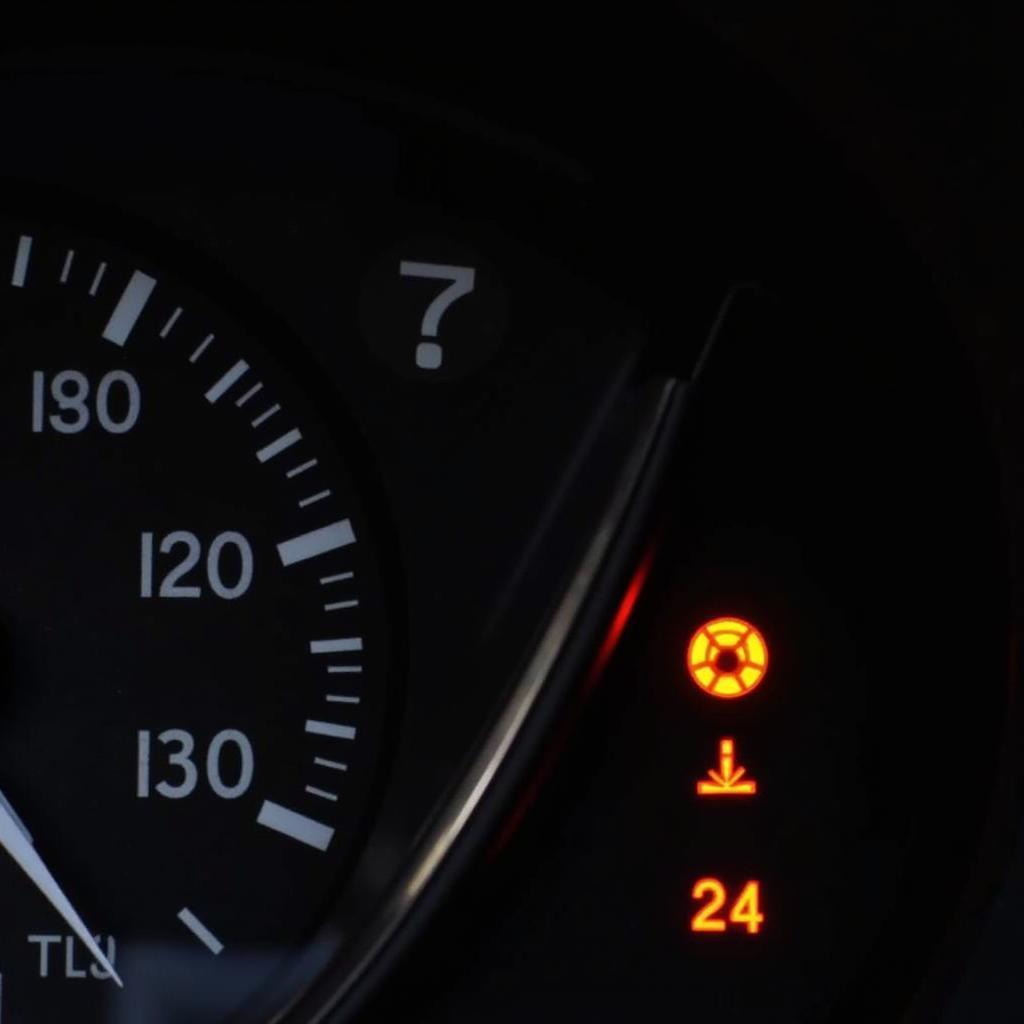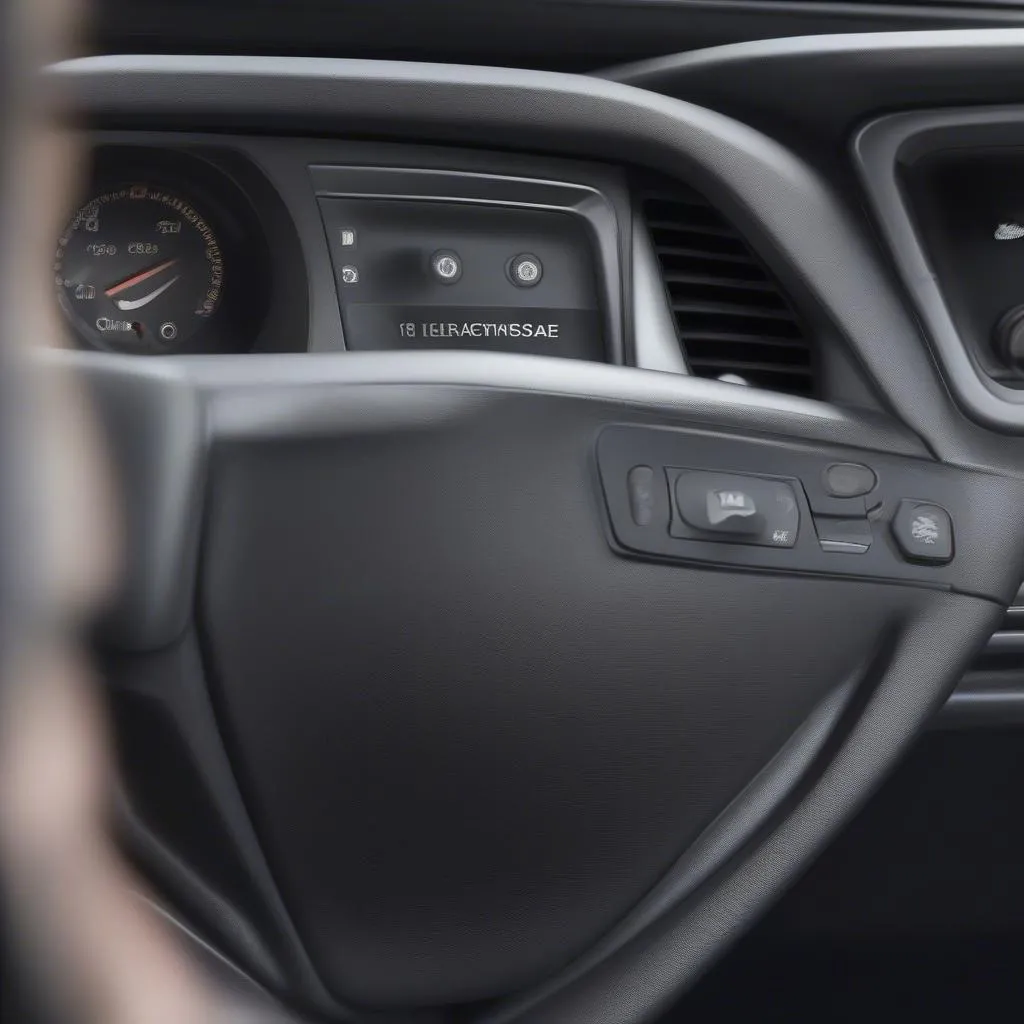The Toyota Prius is a marvel of modern engineering, known for its fuel efficiency and eco-friendly design. However, like any complex machine, it can experience issues, and one common problem Prius owners may encounter is the dreaded illumination of the electronic brake system warning light. This article delves into the common causes behind “Toyota Prius electronic brake system warning light issues” and explores potential solutions, empowering you to address this issue confidently.
Understanding Your Prius’s Electronic Brake System
Before we dive into troubleshooting, it’s essential to understand the basics of your Prius’s electronic brake system. Unlike traditional hydraulic brake systems, the Prius employs an electronically controlled system that works in conjunction with the hybrid system for regenerative braking. This system is complex, involving various components such as:
- Brake Actuator: This unit generates hydraulic pressure for braking when the brake pedal is pressed.
- Skid Control ECU: The brain of the system, monitoring wheel speed sensors and controlling brake force distribution.
- Stroke Sensors: These sensors detect the position of the brake pedal and send signals to the ECU.
- Wheel Speed Sensors: These sensors monitor the rotational speed of each wheel, crucial for ABS and traction control.
Why is My Toyota Prius Electronic Brake System Warning Light On?
Several factors can trigger the electronic brake system warning light in your Prius. Some common culprits include:
1. Low Brake Fluid Level
Just like conventional brake systems, the Prius still relies on hydraulic fluid to transmit braking force. A leak in the system or severely worn brake pads can lead to low brake fluid levels, triggering the warning light.
2. Faulty Brake Actuator
As the heart of the electronic brake system, a malfunctioning brake actuator can cause various issues, including a complete loss of braking power. If the actuator fails to generate the required hydraulic pressure, the warning light will illuminate.
3. Problem with the Skid Control ECU
The Skid Control ECU is responsible for managing various aspects of the electronic brake system. A faulty ECU can disrupt the system’s functionality, leading to erratic braking behavior or even a complete system shutdown.
4. Malfunctioning Wheel Speed Sensors
Wheel speed sensors play a crucial role in the Anti-lock Braking System (ABS) and traction control. A faulty sensor can disrupt these safety features and trigger the electronic brake system warning light.
5. 12-Volt Battery Issues
While not directly part of the braking system, a weak or dying 12-volt battery can interfere with the electronic systems in your Prius, including the electronic brake system.
2007 prius brake system warning light
What Should I Do When the Electronic Brake System Warning Light Comes On?
If your Prius’s electronic brake system warning light illuminates, it’s crucial to take immediate action:
- Pull Over Safely: Find a safe location to pull over as soon as possible.
- Check Brake Fluid Level: If you feel comfortable doing so, carefully inspect the brake fluid level in the reservoir. If it’s low, adding brake fluid might temporarily resolve the issue, but a professional inspection is still necessary to identify and address the underlying cause of the leak.
- Contact a Qualified Mechanic: The electronic brake system is complex and requires specialized knowledge and equipment for diagnosis and repair. Contact a qualified mechanic specializing in Toyota hybrids to diagnose and resolve the issue.
Remote Diagnostics and Software Solutions
In today’s technologically advanced world, remote diagnostics and software solutions have revolutionized automotive repair, offering significant advantages for addressing issues like electronic brake system warnings in your Prius.
How Remote Diagnostics Works
Imagine this: you’re experiencing the dreaded brake system warning light, but instead of immediately heading to a mechanic, you opt for the convenience of remote diagnostics. Here’s how it works:
- Connect to a Specialist: Through a secure online platform or specialized software, you connect your Prius to a remote automotive diagnostician specializing in Toyota hybrids.
- Vehicle Data Extraction: The specialist remotely accesses your Prius’s onboard computer system, extracting vital data related to the electronic brake system. This data includes error codes, sensor readings, and system performance parameters.
- Real-Time Analysis: The specialist analyzes the extracted data in real time, pinpointing the root cause of the warning light. This precise diagnosis eliminates guesswork and ensures targeted repairs.
- Software Updates and Calibrations: In many cases, electronic brake system issues can be resolved remotely through software updates or calibrations. The specialist can upload the necessary software patches or adjust system parameters remotely, saving you time and potentially costly hardware replacements.
2002 toyota prius parking brake warning on display
Benefits of Remote Diagnostics and Software Solutions
- Convenience and Time Savings: Avoid the hassle of visiting a mechanic physically, especially if the issue is software-related.
- Cost-Effectiveness: Remote diagnostics can often pinpoint issues that might be overlooked during a traditional inspection, potentially saving you from unnecessary repairs.
- Expert Support: You gain access to specialized knowledge and experience from Toyota hybrid experts, ensuring accurate diagnoses and solutions.
- Peace of Mind: The transparency of real-time data analysis and communication with the specialist gives you confidence in the repair process.
Preventing Future Electronic Brake System Issues
While some issues require professional attention, proactive maintenance can prevent many electronic brake system problems:
- Regular Brake Fluid Checks: Inspect your brake fluid level regularly and top it off as needed.
- Timely Brake Pad Replacements: Worn brake pads can lead to low brake fluid and trigger the warning light. Replace your brake pads according to your Prius’s maintenance schedule.
- Address Warning Lights Promptly: Ignoring warning lights can exacerbate underlying issues.
- Choose a Qualified Mechanic: For any brake system concerns, seek a mechanic specializing in Toyota hybrids.
Conclusion
The electronic brake system in your Toyota Prius is a testament to modern automotive technology, ensuring safe and efficient braking. Understanding its components and potential issues is crucial for addressing any warning lights promptly. While remote diagnostics and software solutions offer convenient and cost-effective solutions for specific problems, regular maintenance and prompt attention to warning signs remain paramount for preventing future electronic brake system issues. By staying informed and proactive, you can keep your Prius running smoothly and safely for years to come.


